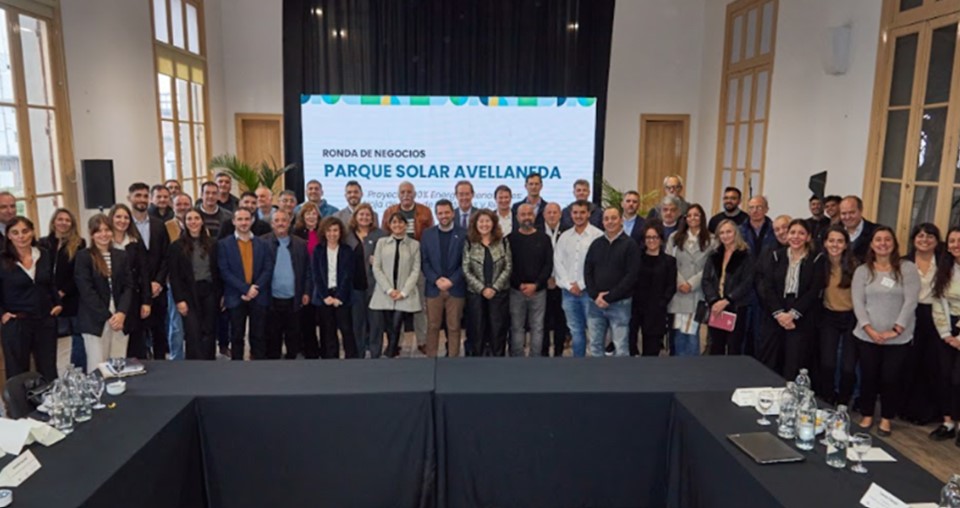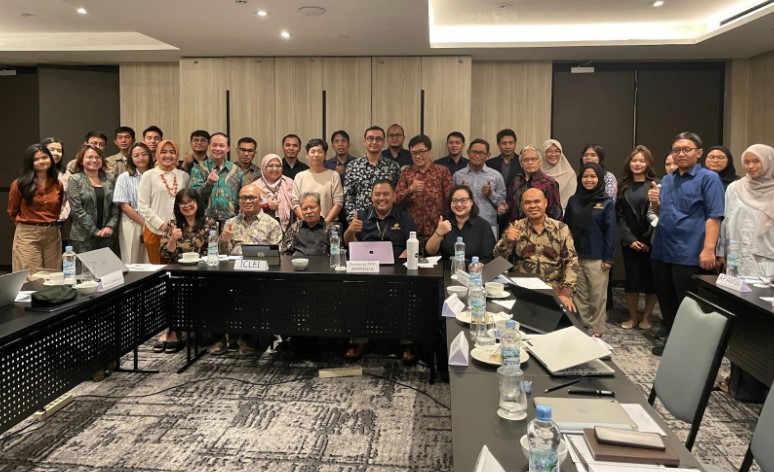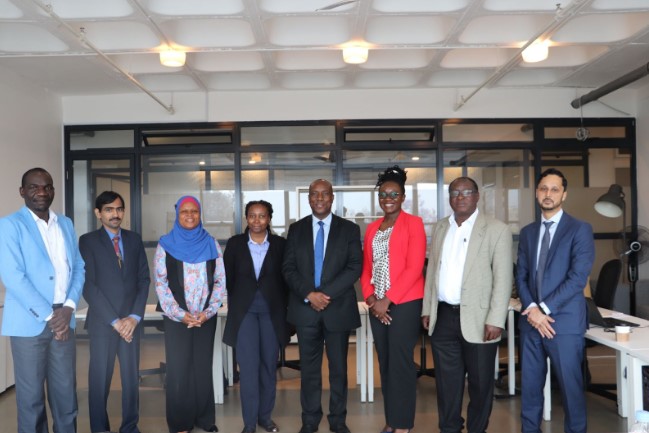Connecting investors and projects towards 100% renewables
Introduction
Planning for the sustainable energy transition is a massive endeavour on its own, requiring an alignment of skills, data, and financial and technical resources. However, many ambitious plans tend to struggle in the implementation phases due to the same reasons.
The 100% Renewables Cities and Regions Roadmap project (100% RE) has been implemented over the years by ICLEI and funded by the German Federal Ministry of Economics and Climate Action (BMWK) through the International Climate Initiative (IKI). The project has supported local and regional governments in Argentina, Indonesia, and Kenya in developing their local strategies towards 100% renewables, but what sets it apart is it goes one step beyond and supports participating cities and regions with the development of a ‘bankable’ renewable energy or energy efficiency-related project that aligns with the financing criteria of potential funding institutions. The cities receive training and support through out the process.
In Argentina, Avellaneda serves as the ‘deep-dive’ city, receiving the most support, with Rosario and La Plata as network cities. In Indonesia, West Nusa Tenggara Province is the ‘deep dive’ region, while Sumbawa Regency and Mataram City are the networking cities and regions. In Kenya, Kisumu County is the ‘deep dive’ city, with the counties of Nakuru and Mombasa as networking regions.
Avellaneda, Argentina
Avellaneda’s Planned Solar Plant
The planned project involves the installation and operation of a photovoltaic plant consisting of 7,308 bifacial monocrystalline photovoltaic modules with an individual power rating of 690 Wp. The solar panels will be connected in strings of 29 units each, along with a total of 14 inverters. The photovoltaic plant will include one 7.038 MVA or similar capacity substation transformer. This higher capacity transformer was selected considering future expansions of the solar plant.
Business Roundtable “Avellaneda Solar Plant”
On May 22, 2024, Gonzalo Braidot, Avellaneda ‘s mayor, participated in a business matchmaking event held by AIRES Renewables in Santa Fe, Argentina, about the Avellaneda Solar Park. The purpose of the event was to attract regional investments for renewable energy infrastructure to pave the way toward sustainability with low GHG emissions. In this respect, technical issues, economic-financial features, and differential elements of the Avellaneda Solar Plant were stated during the presentation, justifying it in its feasibility from a conceptual level of development to its practical execution. The event stresses the strong interest manifested by the market and good reception shown by potential financiers for the project as much for the local development that it will bring about as for the technological innovation and economic, social, and environmental value it gives to the community.

Figure 1 – Avellaneda’s business matchmaking event
Participants included:
- Authorities from the Government of Santa Fe
- Private and public sector energy companies
- Avellaneda authorities
- Business chambers
- Professional associations
- Consulting team
The event marked a significant milestone for the 100% Renewables Roadmap project. Participants expressed their interest through various inquiries and comments. Several stakeholders indicated their intention to financially support the initiative or participate in its execution. The positive response from attendees reinforces the project’s viability and opens doors to new opportunities for long-term financing and strategic partnerships.
West Nusa Tenggara, Indonesia
Karang Taliwang Public Health Center is set to undergo a remarkable transformation, becoming a pilot project for 100%RE Project in WNT Province. The 41.8 kWp rooftop solar PV system, equipped with a 288 kWh storage battery, will harness solar irradiation to generate clean and sustainable electrical energy for 24 hours including for the Emergency Room at the Public Health Center, reducing reliance on conventional grid power, which is predominantly generated from fossil fuel power plants. In compliance with technical, environmental, and legal regulations, the energy produced will be utilized for self-consumption of Karang Taliwang Public Health Center.
The Business Matchmaking Event was held in Jakarta on 5 June 2024 to gather relevant stakeholders who are interested in financing the implementation of the concept in the pilot project to realize 100% solar energy consumption in the Karang Taliwang Public Health Center’s Building in Mataram City. This event was attended by 49 relevant stakeholders (42 in person and 7 online) from National and Local Governments, Financial Institutions, PV vendors with financing schemes, State-owned Enterprises, and private businesses with Corporate Social Responsibility funding. Figure 5 presents the group photo session at the business matchmaking event. This event was opened, facilitated, and closed by the West Nusa Tenggara’s Government as the owner of the project.
The majority of participants of the Business Matchmaking Event thought that the PV project at the Karang Taliwang Public Health Center was too small in terms of capacity, and thus it is not appealing for private stakeholders, as well as the development organizations. The participants resonated a similar suggestion: Bundle the projects to achieve a certain level of capacity size in order to increase the tractions of the project to be financed. Simultaneously, increasing the capacity of the project would lead to the reduction of electricity cost (Rp per Wp), due to economy of scale, which is preferable to improve the project’s financeability.
By listening to participants, the WNT Government represented by Mr. Sahdan as the head of WNT’s Energy Office had declared that the government would follow up the inputs, including to consider increasing the project’s capacity size through bundling.

Figure 2. Various stakeholders attended the Business Matchmaking Event in Jakarta on 5 June 2024
With the advancement of this pilot project implementation at Karang Taliwang Public Health Center, the project also aims to scale up opportunities in other locations. Expanding the dissemination of solar PV projects will lead to a reduction in costs over time through economies of scale. By replicating and adapting the successful elements of this pilot project in other areas, the initiative can streamline processes, negotiate better terms for materials and services, and ultimately lower the overall expenses associated with solar PV system deployment.
Furthermore, as more solar projects are implemented, the cumulative experience and knowledge gained will enhance the expertise of local professionals, leading to improved installation and maintenance practices. This will not only drive down costs but also increase the reliability and performance of solar PV systems across various regions. The widespread adoption of solar energy projects will contribute significantly to sustainable development, energy independence, and environmental conservation.
Kisumu County, Kenya
The “Renewable Energy and Energy Efficiency & Conservation in County Facilities” project aims to increase the use of renewable energy for health facilities across Kisumu as part of the 100% Renewables Cities and Regions Roadmap. The objective of the project is to support Kisumu County’s transition to 100% renewable energy through demonstration of renewable energy and energy efficiency measures in healthcare facilities while demonstrating their feasibility and economic benefits.
Some of the key components include:
-Technical Assessment: This shall involve a review of the existing energy audits, collection, and analysis of data relating to energy consumption and design of renewable energy and efficiency solutions pertaining to healthcare facilities, including solar photovoltaic systems and heat pumps for hot water supply.
-Financial Assessment: The project evaluates financial viability for the proposed measures in cost estimation, business model analysis, and financial modeling for investment readiness.
It also identifies the potential risks and mitigation strategies associated with the project and states the need for a project management team that shall constantly work on its implementation and maintenance process. The ultimate aim thus will be cost savings, reliable power, and reduced dependency on fossil fuels, with the potential scaling of similar initiatives county-wide.

Figure 3: Business matchmaking event, Nairobi, Kenya
A business matchmaking event was held on July 29, 30, and 31, 2024, in Nairobi, Kenya, where the Renewable Energy and Energy Efficiency Project in Kisumu County was presented by Bazaruto Renewables. The event showcased the business model, feasibility study, and technical results of the financial modeling to various financial institutions and stakeholders. On August 1, 2024, H.E. Prof. Peter Anyang’ Nyong’o, Governor of Kisumu County, launched the 100% Renewable Energy Roadmap in Kisumu, Kenya.
In summary
Each of the events marked a significant step in the 100% Renewables Cities and Regions Roadmap project, as well as in the sustainable energy journeys for each of the deep-dive cities and regions. They were able to highlight their existing commitment, projects, and their ambitions to potential funders and investors and attract the necessary financial resources to realize their ambitions.

